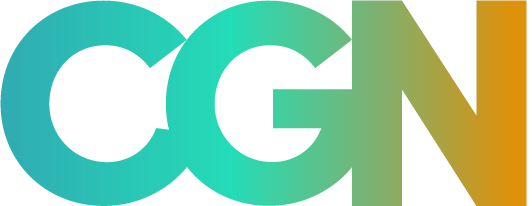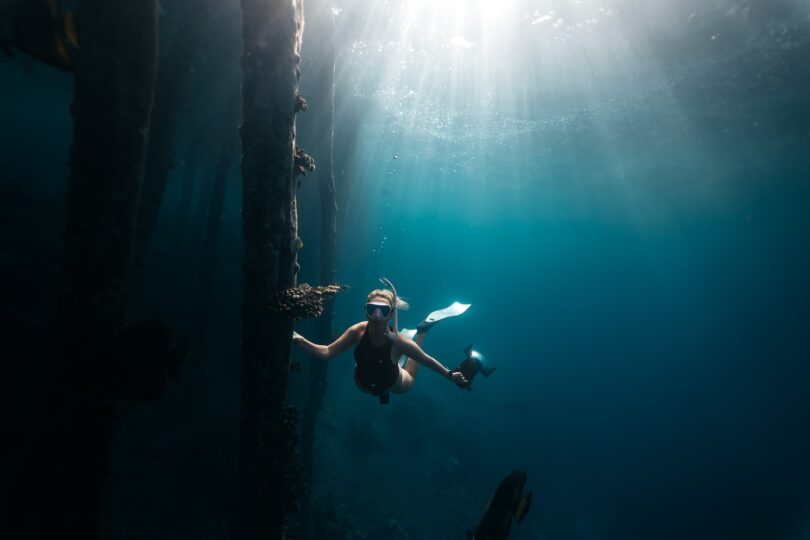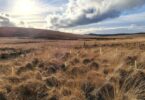Madeline is a tropical marine biologist, wildlife filmmaker and founder of Women in Ocean Science. Her work is multi-disciplinary, looking at both people and the planet – and how these things intersect. One of the things she is hugely passionate about is creating spaces for women to conserve the ocean, which is how her NGO Women in Ocean Science – now a charity! – was formed. She said that it’s been so incredible to see how what started as a concept that was born in the field during her Master’s degree at 21, has spiralled into the most incredible global community!
The “Leaky Pipeline” and Advancing Women in Ocean Science
The “leaky pipeline” refers to the loss of women at various career stages within ocean science, particularly as they progress to higher levels – AKA female representation decreasing with seniority. The leaks in the pipeline are driven largely by the challenges faced by women – structural gender biases, limited mentorship opportunities, unequal access to resources – and they perpetuate power differentials between men and women, creating further issues. These factors contribute to a significant drop in the number of women in senior positions.
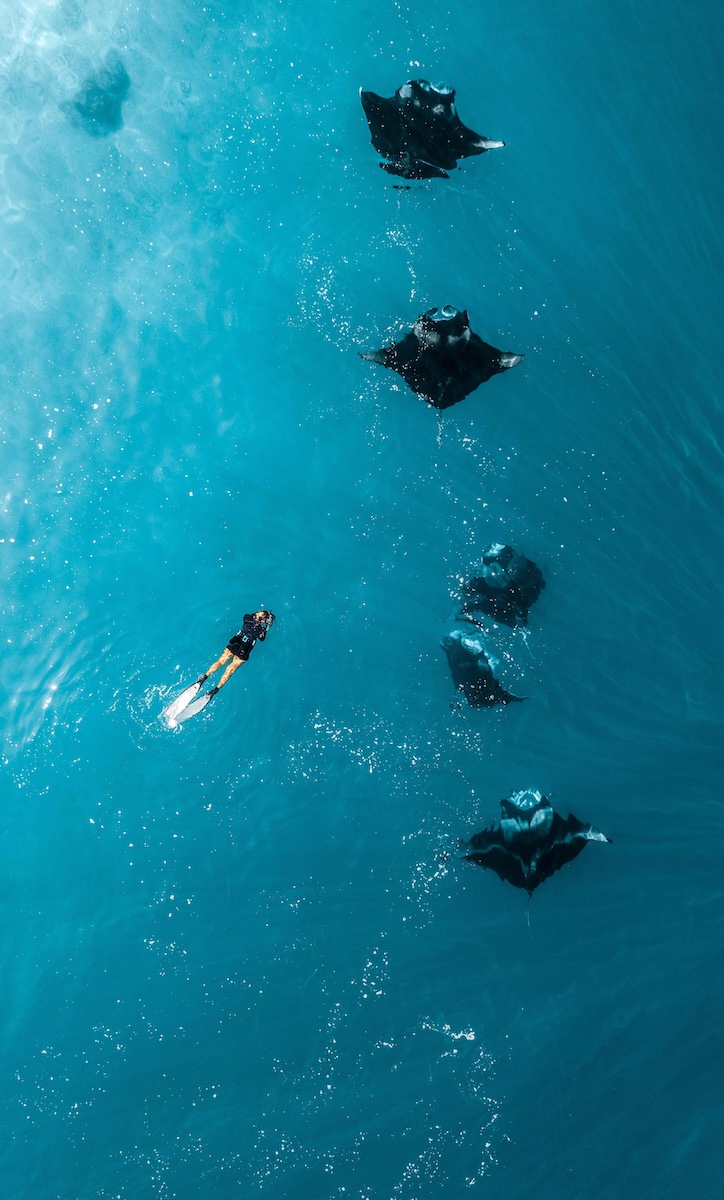
Image credit Elise Gibbins
Closing this leaky pipeline will require creating a supportive ecosystem that addresses these challenges and I’d like to see: Opportunity equity. If we really want to close the gender gap in ocean sciences, we have to consider the distinction between equality and equity. While gender equality looks at fair treatment and equal outcomes, gender equity focuses on levelling the playing field, and compensating for the historical and social disadvantages. Mandatory sexual harassment policies and reporting for academic institutions, research institutes and field projects. Sexual harassment and assault are absolutely rife within the industry (from the Women in Ocean Science survey in 2021, 78% of women experience sexual harassment in the workplace and learning environments) and getting real-world repercussions in place for violators will be a huge step toward creating a safer space for women.
Underrepresentation of Women in Senior Positions Within Ocean Science
There are many reasons why there is an underrepresentation of women in senior positions, but there is one close to my heart that I would like to mention here; motherhood. It’s a pretty strange thing to look upwards and not see many people that look like you there. When I was at university, I rather subconsciously accepted that most of those in senior positions were male. It wasn’t until I left university and started working in marine science that I started to wonder how this would affect me in my subsequent career.
Because I am quite unashamedly a woman who wants to have it all. I want children, I want a family and I want an ambitious career. I have spent the better part of my twenties with colleagues, seniors, and partners telling me that the thought of “having it all” is a complete and utter farce. The working world we know today was built around the premise that a man had 8 hours, 5 days a week to work, supported by a wife who stayed home to cook, clean and rear children. To be a mother within the current system carries significant career penalties. And though things are moving in the right direction, we still don’t support women enough who take time out of their careers.
We need a concerted effort to address how we can better create a work culture that includes women and families. I’d like to see more maternity and postnatal parental leave, targeted support for women re-entering the workspace after having children, creating a workweek designed to support women – and dismantling the narrative that women have to choose between being a mother and having a career.
Empower Ocean: Supporting Women from Local Communities
This is probably the thing I have been most proud of at Women in Ocean Science. Empower Ocean creates opportunities for local women to become ocean guardians in the Indo-Pacific. Gender equity and ocean health are intrinsically linked. We know that women are disproportionately predisposed to suffer the impacts of climate and environmental disasters, despite being cited as key agents of change for our oceans and studies prove time and time again their ability to nurture a culture of marine stewardship.
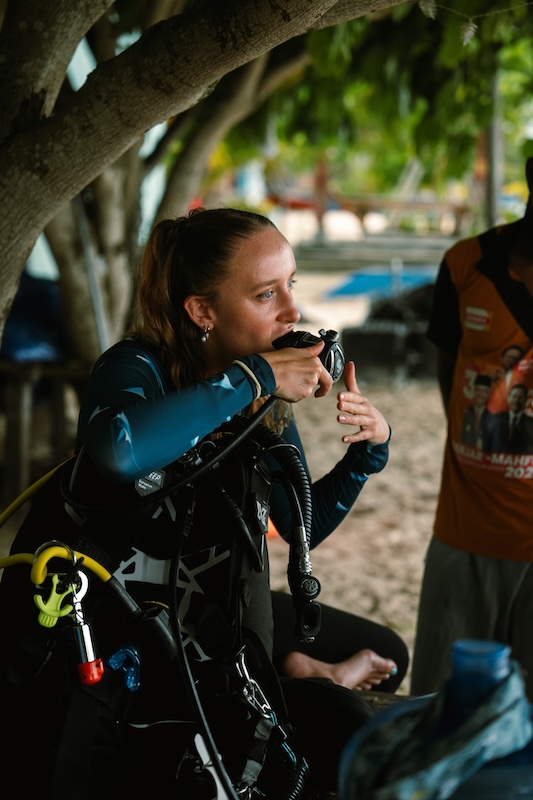
Image credit Elise Gibbins
Within many small island and coastal communities, women are less likely to engage in ocean-based industries (conservation, science, diving, fishing, ecotourism), facing cultural barriers and gender norms that prevent them from having the same level of ocean access and engagement as men. This is why equity of opportunity is so important – creating space for women to have a seat at the table in conserving the ocean. So, a couple of years ago, myself and the team at Women in Ocean Science began developing a female empowerment and capacity-building programme called Empower Ocean, to facilitate opportunities for local women to be actively involved as guardians of their own marine environment. For the past year and a half, we have been piloting the initiative within Raja Ampat (Indonesia) and Fuvahmulah Island (Maldives), in collaboration with local stakeholders. We conduct research on gender barriers to female ocean access, provide ocean literacy, marine conservation, and dive training programmes for local women and use storytelling to increase the visibility of female role models within their communities.
The past year of our project has been absolutely incredible; we have just finished the first stage of training in both Raja Ampat and Maldives, qualifying 8 women and also having incredible opportunities to engage the communities, including taking over 30 women – girls, mothers and community elders! – snorkelling with mantas. (Several of whom had never seen a manta before, despite living within 100 metres from some of Raja Ampat’s most famous manta ray sites!)
Growing up in the UK, I was afforded the opportunity to engage in marine science and conservation. I believe in paying it forward – and it’s important to me to create the same opportunities I’ve had as a woman for others.
How does it feel to empower others to explore and conserve our oceans?
I listened to Daughter’s For Earth’s Zainab Salbi speak at an event last year, and she said something along the lines of: women don’t need to be empowered, they’re already so powerful – but rather need to be given the opportunity to access their power from within.
This really stuck with me, because when I trained the first woman from the local community in Raja Ampat, Selviana Mambrasar, it felt like exactly that. Selvie was a brilliant diver straight off the bat. Talented, passionate – and the most natural diver in the water. She’d spent 19 years swimming and snorkelling in the water around her home. And seeing her dive – excited, curious. That was a really beautiful moment. It was very emotional. I cried a lot underwater that day.
Since then, I’ve watched her evolve into an incredible champion for her island and home reef. From that first moment she saw a manta underwater, to now restoring her local reef. Seeing other young women and girls within her community look upwards and seeing her doing this kind of work. And watching her grow into a dive professional, now assisting more women from her community to learn to dive. That’s powerful stuff. Representation really matters and I have no doubt that she will absolutely be a catalyst for change for women within the region. It’s very moving, because the passion, curiosity and desire to learn was there all along really. Women already come with wings. Now we just have to make sure everybody gets the opportunity to fly.
Male Allyship and Inclusive Leadership
I always say to my friends and colleagues that my “brand” of feminism includes men. I believe in equality – and I want to see women, non-binary people and men at the top supporting each other. A couple of years ago I asked a woman on a gender equity panel about the role of male allyship in creating an inclusive space and she very quickly shot me down with a response about “not needing anything from men”. It felt reminiscent of an old-school female-only feminism that is exclusive, divisive and isn’t what we need to create a space for all.
Allyship involves actively supporting and advocating for equality for a marginalised group, without actually being a member of it. When you hold that position of power – which in the case of gender would be identifying as a man – you can contribute to dismantling existing biases, promoting inclusive policies, and creating a workplace culture that values diverse perspectives. That’s being an ally. It’s about calling it out when you see it. It’s about lifting women and non-binary people up. One of the biggest reasons people don’t take action is because they’re concerned they’ll get it wrong – and this is what we need to work on.
Male allyship can look like mentorship, calling out unacceptable behaviours or amplifying women. To the male allies who, to this day, shout my name in a roomful of opportunities, mentor me, amplify my voice and my research and who fiercely backed me in times of adversity – I see you, and I am grateful.If you have privilege, use your influence to create a positive space for others.
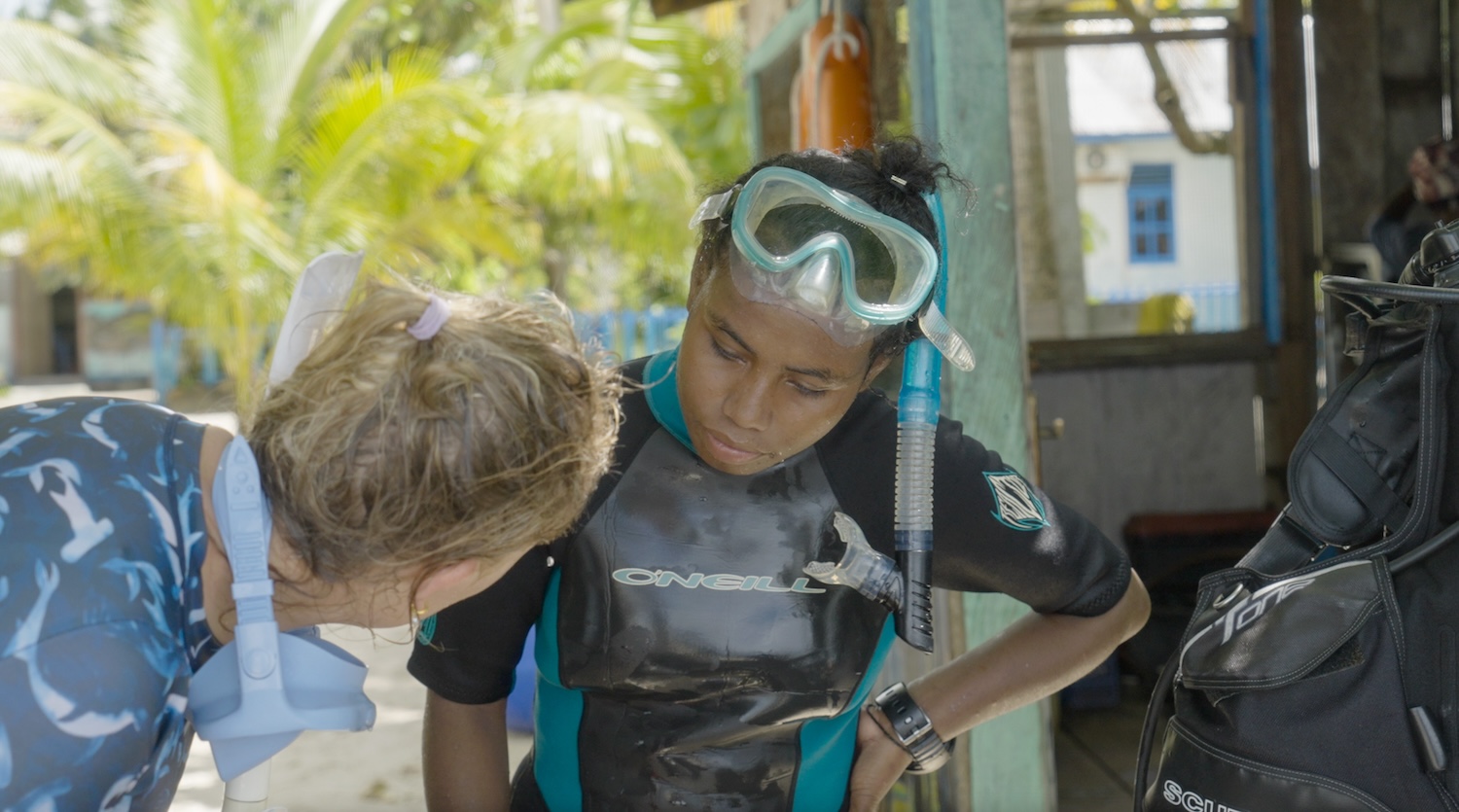
Image credit Elise Gibbins
Advice for Aspiring Women in Ocean Science
It’s hard to offer advice without sounding cliche, but here goes; Be resilient, seek mentorship and actively engage with a community that supports your journey. People in your corner are powerful – find people who you champion and who champion you. Be an ally to others, don’t take sh!t from people and call it out when you see it. Every time. Not just when it’s comfortable or “the right time”. As women, the world finds a way to tell us every day that we need to be more or less. So, most importantly of all, believe in yourself. (And yes, everyone really does have imposter syndrome). Carving out a space for yourself in a discipline that has historically pushed women out is not always easy. So never apologise for your ambition. Shout about your achievements. Stay curious.
empowerocean.org @empower_ocean
womeninoceanscience.com @womeninoceanscience
madsocean.com @mads_ocean
Related article:
Women Driving Change: A Discussion with Mamta Borgoyary and Natalie Sifuma from SHE Changes Climate


